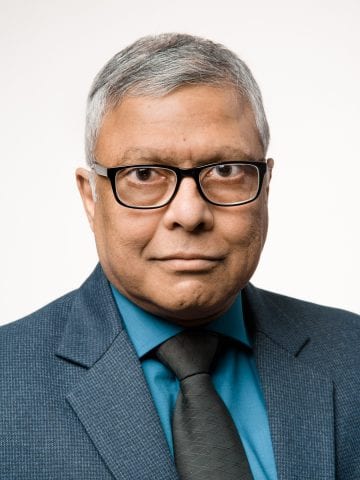The universality of universal health coverage in the Russian Federation

Paul Pavitra,
Dr. (med.), Ph.D.(health economics), Affiliate Researcher,
University of Eastern Finland,
Finland
Co-Convenor,
EFFSIG- iHEA, International Health Economics Association
The World is in the spotlight of Sustainable Development Goals (SDGs) for the “Agenda 2030”. Population health is both an outcome and a driver of economic and social progress. Universal Health Coverage (UHC) is recognised as the cornerstone of “Equity”, “Inclusive Development” and “Prosperity for All”. UHC is a political choice and also acknowledged as the human rights. A High-Level Meeting of United Nations General Assembly has adopted UHC as the right of every human being everywhere to have the access of quality and affordable healthcare services with financial protection.
Following disintegration of the United Soviet Socialist Republics, the Russian healthcare system has undergone significant changes – decentralization of management, introduction of mandatory health insurance system and institutionalization of user fees for certain healthcare services in addition to or instead of free-of-charge services.
The compulsory (non-competitive and “universalist”) medical insurance guarantees (Article 41, Constitution of the Russian Federation) free primary, secondary and tertiary healthcare at the point of service consumption within the regional health system of the Russian Federation. However, the demand often exceeds service provision at the health facility level (polyclinics and hospitals) and also each health facility is limited with the fixed quantum (rationing) of money (payment for volume of services rendered) available from compulsory insurance fund for each year. Further, the regional ability to invest in health infrastructure development and often to meet the ongoing expenses at the health facility level are limited. Such constraints compel citizens to pay of their own at the point of service consumption if the citizen need/wants immediate service and /or health facility is compelled to meet the expenses by utilising the available capacity to the best possible extent. Although the individual contribution to compulsory medical insurance fund is uniform, substantial differences exist for services on payment at health facility(s) across regions in the decentralised health system of the Russian Federation. Payment (unofficial) to the individual service provider (nurse and doctor) for receiving attention in regard to quality (as perceived by the individual citizen) and to prioritise (documenting clinical need of service provision) care is not uncommon.
Thus, rationing of payment to health facilities, regional differences in the ability to invest in health system, and prevalence of unofficial and official payments often deny worse-off groups from the needed healthcare services compared to better-off Russians though the former’s health status is often worse. People from worse-off groups, and poor health also consider coverage of compulsory health insurance inadequate. The better-off Russians are also not totally insulated from denial of access to healthcare services attributable to financial affordability when individual behaviour in public realm influences position and acceptance of the individual in the society with a hierarchical social structure.
Hence, the commitment for universal health coverage with legislation is in perpetual conflict with the prevailing out-of-pocket payment that is not adjusted to the household income, and discretion of the service providers determining service availability. Such a situation of inequitable access to the healthcare services associated with often, the denial of needed healthcare services for the Russians guides policy responses for (1) defining boundaries between free and chargeable healthcare services that is often blurred, (2) eliminating variances in substitution between formal and informal payments across regions, and (3) addressing gap between population entitlement and available provision of healthcare services.
Further, a year-on-year fluctuations in financing of the health system from the federal compulsory health insurance fund are common phenomena in the Russian Federation. Such phenomena are the result of an economy that is highly vulnerable to the currency fluctuations in the external market, and that is also susceptible[1] to export fluctuations. The continually increasing disease burden not only demand more investment in health for UHC but also stability in financing that meet the need of the population for whom the health system is designed for. Moreover, a significant proportion of Russians (67.7%) believes that it is unfair that people with higher incomes are to contribute higher for a better health system and improve the level of healthcare services for all people in the country. But health cannot be left to the free market for the better-off to access services, while the worse-off are plunged further into intergenerational poverty. UHC can only be achieved through public investment and that requires more domestic resources mobilization in a sustainable manner.
Population health is an outcome of interactions between and within different determinants like level of environment pollution, quality of housing, neighbourhood hygiene, social support system, efficiency of public transportations, and so on. Decentralised characteristics of healthcare service provisioning in the Russian Federation demand identifying interlinkages and interdependence among the SDGs targets and defining areas for potential multisectoral policies that is issue based at oblast level. In addition, embracing a vertical integration for the “Whole of Government” in the governance approach that involves federal, regional and local governments for assessing policy interactions and policy effects would foster synergies of interventions, identify trade-offs between the SDGs targets and address spill-over effects, and thereby, minimise policy conflicts. Thus, adoption of these strategies shall enable the Russian Federation to avoid duplications of resources allocation while optimising available resources in a sustainable manner, and simultaneously, a better risk pooling of the federal compulsory health insurance fund for realising allocative efficiency.
A balance between equity and efficiency trade-off in public policy performance is the necessity for bolstering Russian economy, and achieving UHC shall act as the catalyst for that progress to sustain on economic, social, and environment milieu of development.
[1]Russian economy is not an economy with diversified exports and so, insulation from the volatility of global oil and gas prices are not strong enough to sustain committed funding for its health system with continually increasing disease burden.
Expert article 2684
